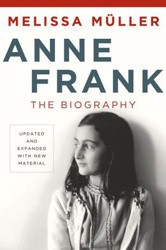Compiled from the 2005 Mediating Anne Frank symposium organized by the Working Group on Jews, Media, and Religion of the Center for Religion and Media at New York University, Anne Frank Unbound “exemplifies the Working Group’s commitment to innovative, cross-disciplinary approaches to studying phenomena at the intersection of religion and media, broadly defined” in its eclectic critique of the contemporary iconicism of the young writer and Holocaust victim. The volume is a collection of essays presented by a diverse collection of scholastic and artistic figures, addressing the representation and legacy of Anne Frank across cultures, media, and disciplines.
Anne Frank Unbound is an academic read, but a pleasurable one nonetheless. While its contributing authors share many of the same references and critiques, the diversity of writing and perspective renders the collection intriguingly repetitive rather than redundant, varied rather than scattered. Its strength lies as much in its content as in its approach: a truly interdisciplinary examination of Anne Frank’s cultural representation over the last half-century.
The collection’s range of subjects goes beyond the cultural outputs beckoning passive engagement with Frank’s personal and writing — plays, films, museums and monuments, educational curricula, the publication of the diary itself — to the representations and tributes created by the intended “audience” in its turn. Liora Gubkin, for example, contributes her exploration of the inclusion of Anne Frank in the American Passover seder as a “personalized Jewish religious practice” endemic to the post-World War II American expectation of “an individualized quest for spiritual meaning” in all religious practice and ritual; Leshu Torchin’s chapter on “Anne Frank’s Moving Images” delves into the burgeoning public library of Frank-inspired homemade video blogs in conversation with feature films and television series; Sally Charnow’s explication of Frank’s work as a true diarist, in which Charnow draws upon the modern gender discourse surrounding the private journals of Victorian women, is not to be missed.
“The greatest challenge for readers of the diary today,” declares Briggite Sion’s submission on Anne Frank as the paradigmatic icon of human rights, “may not be defending Anne’s life and work from attack; rather, it may be engaging her individual history and personal vision free of the redemptive values with which she has been burdened by others.” The Mediating Anne Frank colloquium serves perhaps as the start of a recognized movement to reclaim Frank from the shrine, from the pedestal, from the cross. In Anne Frank Unbound, the critiques and interpretations of contemporary writers, comedians, artists, scholars, and laypeople are brought forward and appraised with equal legitimacy. It is a brief and worthwhile anthology, a provocative turning point in the discourse surrounding Holocaust representation worldwide, and an excellent resource in moments of cultural controversy.Nat Bernstein is the former Manager of Digital Content & Media, JBC Network Coordinator, and Contributing Editor at the Jewish Book Council and a graduate of Hampshire College.





